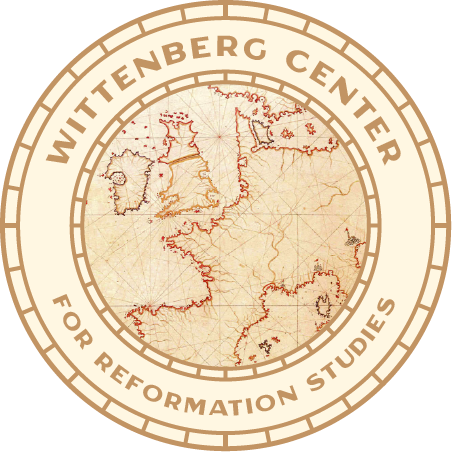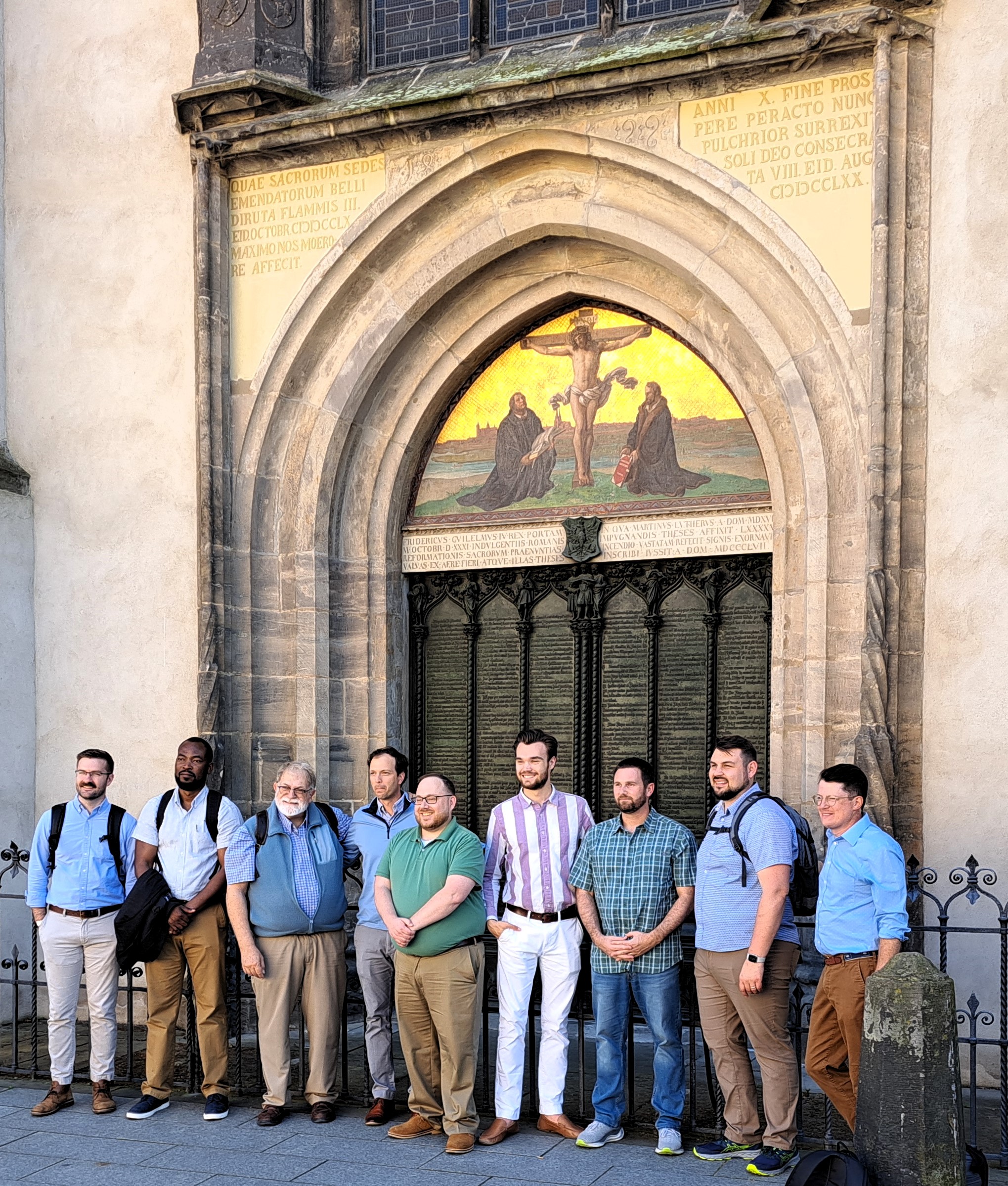From May 13 to 24, the Wittenberg Center for Reformation Studies welcomes the Rev. Canon J. Philip Ashey and the eight Anderson Trane Fellows of the American Anglican Council to explore the history of the German Reformation and its impact on England. Over the course of two weeks, we read and discuss sixteenth-century texts, visit sites of the Reformation, and reflect on the relationship between the Reformation and our own time.

On Friday, the group met with Fabian Mederacke, one of the pastors of the Evangelical Parish Church of St. Mary’s. Pastor Mederacke introduced the Anderson Trane Fellows to the history of the church under the communist dictatorship in East Germany and the challenges of church ministry in Wittenberg today.
Some of the group used the free weekend to travel with Andreas Stegmann to Nuremberg and visit St. Lorenz, where Thomas Cranmer met Andreas Osiander in the summer of 1532 and was won over to the message of the Wittenberg Reformation. Along with Wittenberg, Nuremberg is the second place that influenced the incipient church renewal in England.
The second week will focus on developments in England.

The first week focused on Germany. On Monday, the group was introduced to the history of Wittenberg, and city historian Dr. Insa Christiane Hennen gave a tour of the old town. Tuesday and Wednesday focused on the Englishmen who brought the Wittenberg Reformation to England in the 1520s and 1530s, particularly William Tyndale and Robert Barnes. The group discussed Tyndale’s 1526 preface to Paul’s Epistle to the Romans, which was the first summary of the message of the Wittenberg Reformation for an English audience. Thursday and Friday focused on the implications of Wittenberg theology for church and society, looking at sacraments and worship, as well as school and education.



